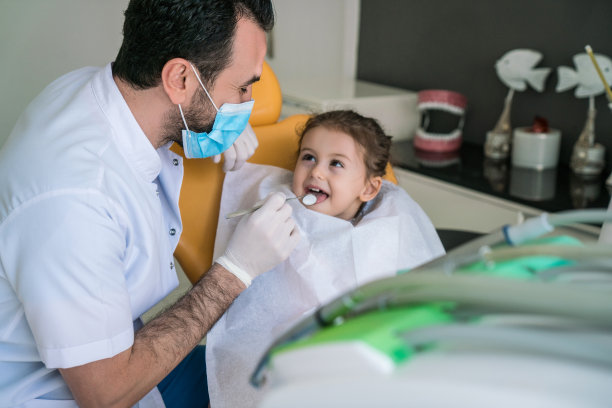Essential Measures to Take Before and After Dental Filling Procedures for Optimal Oral Health
Summary: Dental fillings are essential for restoring dental health after cavities, but proper care must be taken both before and after the procedure. This article outlines important measures that patients should adopt to ensure optimal oral health surrounding filling procedures. The significance of dental assessments, preparation steps, post-procedure care, and ongoing oral hygiene practices are highlighted. By following these guidelines, patients can alleviate anxiety, enhance the effectiveness of their fillings, and promote long-term oral health.
1. Importance of Pre-Filling Dental Assessment

Before undergoing any dental filling procedure, a thorough dental assessment is crucial. This assessment allows the dentist to evaluate the extent of decay and determine the suitable filling material. This personalized evaluation ensures that the treatment plan aligns with the patients specific dental needs, which can lead to better outcomes.
Additionally, pre-existing conditions, such as allergies or dental anxiety, should be discussed with the dentist. Informing the dental team about these conditions can guide them in tailoring the process to create a more comfortable experience. This includes choosing appropriate numbing agents or discussing sedation options if necessary.
A comprehensive assessment not only enhances the safety of the procedure but also prepares the patient mentally. Understanding what to expect can reduce anxiety and build trust between the patient and dental professional, setting the stage for a successful filling procedure.
2. Preparing for the Dental Filling Procedure
Once the assessment is complete, proper preparation for the dental filling procedure is paramount. Patients should maintain good oral hygiene leading up to their appointment. Regular brushing and flossing can help keep the surrounding teeth healthy, reducing the risk of further decay that could complicate the filling process.
It is also advisable to avoid eating hard or sticky foods the day before the appointment. Such foods can potentially exacerbate discomfort and make it difficult for the dentist to work effectively. Instead, consume soft, nutritious meals that contribute to overall oral health without adding unnecessary strain on the teeth.
Patients should arrange transportation to and from the dental office, especially if sedation is involved in the procedure. Having someone accompany you can not only provide support but also enhance comfort and safety following the appointment. Being adequately prepared can alleviate stress on the day of the filling procedure.
3. Post-Filling Care for Optimal Recovery
After the filling procedure, proper care is crucial for maintaining the integrity of the filling and the overall health of the mouth. Patients should follow the dentists instructions regarding any dietary restrictions or recommendations. In general, its advisable to avoid hot or cold foods immediately after the procedure, as the new filling may be sensitive for a short period.
Patients should also be aware of any lingering numbness from local anesthesia. It is essential not to chew on the side of the mouth that was treated until sensation returns completely to avoid accidental injury to the mouth or lips. This precaution helps in preventing discomfort and ensures a smoother recovery process.
Regular follow-ups with the dentist will also play a vital role post-procedure. These visits allow the dentist to monitor the filling site for any signs of complications, such as infection or premature wear of the filling. Staying proactive in post-filling care will lead to better long-term oral health outcomes.
4. Maintaining Long-Term Oral Hygiene Practices
Maintaining excellent oral hygiene practices is essential for prolonging the life of a dental filling and preventing future cavities. This includes brushing at least twice a day with fluoride toothpaste and flossing daily to remove plaque and food particles that can lead to decay.
Incorporating regular dental check-ups, ideally every six months, is equally crucial. Routine professional cleanings and examinations allow the dentist to identify potential issues early on and address them before they become significant problems. The dentist can also assist in providing personalized tips to improve your oral hygiene routine.
Additionally, being mindful of dietary choices can greatly impact oral health. Limit the intake of sugary snacks and beverages, as these can contribute to decay and undermine the success of your dental fillings. Drinking plenty of water, particularly fluoridated varieties, can help wash away food particles and reduce cavity risk.
Summary:
In conclusion, implementing essential measures before and after dental filling procedures can significantly enhance oral health and the longevity of dental work. The combined efforts of thorough dental assessments, proper preparation, diligent post-care, and ongoing oral health practices ensure that you maintain a healthy smile in the long run.
This article is compiled by Vickong Dental and the content is for reference only.



